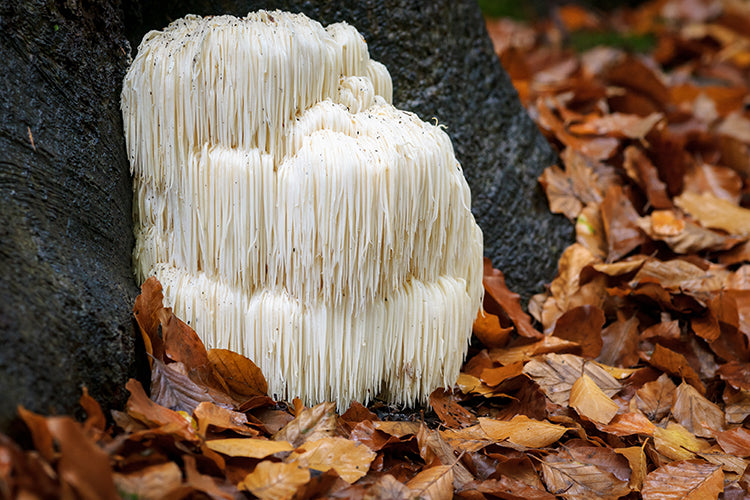Brain health and cognitive function are vital to everyone, young and old. Modern society is overmedicated and poorly nourished, which has a negative impact on brain health cognitive function. Nature has always had an answer to improving cognitive function and overall brain health: Lion’s Mane Mushrooms. If you are interested in learning more about getting sharp and staying sharp, you will want to check out our new blog post! Remember to share with friends and family. Health is Wealth!
--------------------------------------------------------------------------
Lion’s mane mushrooms have been cultivated for their culinary and medicinal benefits for centuries in Asia and modern studies have shown that its medicinal benefits are quite potent.
Also known as hou tou gu, yamabushitake, or hericium erinaceus, they are large, white, shaggy mushrooms that resemble a lion’s mane as they grow. They can be enjoyed raw, cooked, dried or steeped as a tea. Their extracts are often used in over-the-counter health supplements.
Lion’s mane mushrooms contain bioactive substances that have beneficial effects on the body, especially the brain, heart and gut. In this blog we will focus on the powerful benefits this mushroom packs for brain health.
Dementia & Alzheimer’s
Neurodegenerative diseases like alzheimer’s and dementia are conditions that are increasing in a rapidly aging society and are a consequence of cell degeneration in the brain. Neuroplasticity, or the ability of our brain to wire new connections, decreases with time, making older people more prone to cognitive decline.
Research has shown that hericenones and erinacines, which are two active ingredients of lion’s mane mushrooms, stimulate the growth of brain cells and help prevent dementia. Studies conducted on adults with mild cognitive impairment concluded that daily consumption of lion’s mane supplements significantly improved their cognitive impairment within just four months of starting their daily consumption.
It is also able to prevent the neuronal damage from amyloid-beta plaques, which accumulate in the brain during Alzheimer’s disease and reduces the symptoms of memory loss. The ability of lion’s mane mushroom to promote nerve growth and protect the brain from Alzheimer’s-related damage may explain some of its beneficial effects on brain health.
Depression & Anxiety
Some of the most widespread conditions of the modern world are depression and anxiety. Statistics show that up to one in three people in the US experience symptoms of depression or anxiety. The fast paced, tech-driven world that we live in today can be mentally tough on the best of us. In addition, chemically induced causes of depression and anxiety are rampant in modern society. The positive side to this is that some conditions and symptoms can be ameliorated with proper nutrition, supplementation, and life style changes. Lion’s mane and its extracts have been shown to have a variety of mental health benefits including reduction of symptoms of depression and anxiety due to its anti-inflammatory effects.
Improving the functions of the hippocampus (the region of the brain responsible for processing memories and emotional responses) can result in decreased symptoms of depression and anxiety. Studies have shown that lion’s mane extract can help with regeneration of brain cells and therefore improve the functioning of the hippocampus and reduce depression and anxiety related symptoms.
In summary, lion’s mane is an excellent natural source for improving and maintaining brain health and cognitive function, helps prevent and alleviate dementia and Alzheimer’s, reduces mild symptoms of anxiety and depression and helps repair nerve damage.
Take charge of your brain health starting today with Farmacy’s King of the Jungle!
Each vegan capsule of Farmacy’s King of the Jungle contains 300 mg of premium sourced lion’s mane mushrooms as well as a blend of other mushrooms that have a powerful effect on improving brain function such as cordyceps (100 mg) and turkey tail (100 mg).


